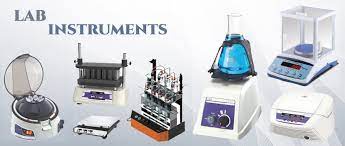In the world of machinery and technology, precision is paramount. Equipment that provides accurate measurements and reliable results is a cornerstone of various industries. To achieve this level of accuracy, recalibrating equipment is essential. In this article, we'll delve into the world of equipment calibration, exploring its importance, process, benefits, and much more.
1. Introduction
Equipment calibration is a process that involves fine-tuning and adjusting instruments to ensure they provide accurate and reliable measurements. It is a crucial practice in industries where precision matters, such as healthcare, manufacturing, research, and many others.
2. Understanding Equipment Calibration
Calibration involves comparing a device's measurements to a standard with a known accuracy to detect and correct any deviations. This process ensures that the equipment consistently provides precise and reliable results.
3. Why is Equipment Calibration Necessary?
Equipment calibration is necessary for several reasons:
- Compliance with industry standards and regulations.
- Maintaining the quality of products and services.
- Ensuring the safety of processes and operations.
- Minimizing the risk of errors and discrepancies.
4. The Importance of Accurate Measurements
Accurate measurements are the foundation of quality control, research, and decision-making. Equipment that is not properly calibrated can lead to costly errors, jeopardize safety, and compromise the integrity of products or services.
5. Types of Equipment That Require Calibration
Various types of equipment require calibration, including:
- Temperature sensors
- Pressure gauges
- Scales and balances
- Medical devices
- Laboratory instruments
6. The Calibration Process
Calibration typically involves the following steps:
- Setting up the equipment and standard.
- Making measurements.
- Comparing the results.
- Adjusting the equipment if necessary.
- Documenting the calibration process.
7. Benefits of Regular Equipment Calibration
Regular equipment calibration offers numerous advantages, including:
- Enhanced product quality.
- Reduced operational errors.
- Increased equipment lifespan.
- Compliance with industry standards.
8. Calibration Frequency
The frequency of calibration depends on several factors, such as the equipment type, usage, and industry regulations. Some equipment may require daily calibration, while others can be calibrated annually.
9. Common Calibration Errors to Avoid
Calibration errors can occur due to various reasons, including human error, environmental conditions, and equipment wear. Being aware of common errors can help in avoiding them.
10. Choosing the Right Calibration Service
Selecting a reliable calibration service provider is crucial. Factors to consider include their accreditation, experience, and turnaround time.
11. DIY Calibration vs. Professional Calibration
While some equipment can be calibrated in-house, professional calibration services are recommended for high-precision instruments. The choice depends on the equipment's complexity and the organization's resources.
12. Cost Considerations
Calibration costs vary depending on the type and quantity of equipment, as well as the calibration frequency. However, the investment in calibration often outweighs the potential costs of inaccuracies.
13. The Impact of Uncalibrated Equipment
Uncalibrated equipment can lead to serious consequences, such as product recalls, safety hazards, and damage to a company's reputation.
14. Ensuring Compliance and Quality Assurance
Calibration is essential for complying with industry regulations and ensuring that products and services meet the highest quality standards.
15. Conclusion
In conclusion, recalibrating equipment is an indispensable practice for industries that rely on precision and reliability. It ensures that measurements are accurate, products are of high quality, and safety is maintained. By investing in equipment calibration, organizations can protect their reputation, reduce operational errors, and ultimately achieve success.
Frequently Asked Questions
1. How often should equipment be calibrated?
The frequency of calibration depends on the equipment type and usage. Some equipment may require daily calibration, while others can be calibrated annually.
2. Is DIY calibration suitable for all equipment?
DIY calibration is suitable for simple equipment but not recommended for high-precision instruments. Professional calibration services are advisable for complex machinery.
3. What are the consequences of using uncalibrated equipment?
Uncalibrated equipment can lead to product recalls, safety hazards, and damage to a company's reputation. It's crucial to avoid such risks by ensuring regular calibration.
4. How can I find a reliable calibration service provider?
When selecting a calibration service, consider factors like accreditation, experience, and turnaround time. Researching and reading reviews can help you make an informed choice.
5. What industries benefit the most from equipment calibration?
Industries such as healthcare, manufacturing, research, and laboratories benefit the most from equipment calibration, where precision and reliability are essential.


No comments yet